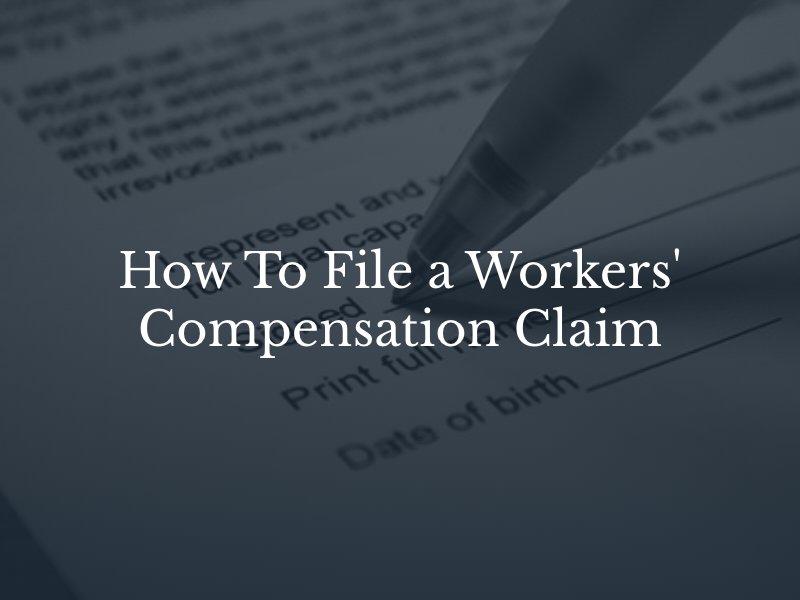
Accidents at work can result in serious injuries that disrupt your life and financial stability. If you or a loved one has been injured on the job, you may be entitled to compensation for medical expenses and lost wages during recovery.
Partnering with a Gretna workers’ compensation attorney from Morris Bart ensures you receive comprehensive support, from the initial lawsuit filing to a judge’s hearing.
How a Gretna Workers’ Compensation Lawyer Can Assist You
Louisiana’s workers’ compensation program is designed to provide financial support to employees injured on the job. However, obtaining fair compensation from an insurance company can be challenging, as insurers often prioritize their profits over your well-being. Hiring an experienced attorney is crucial to safeguarding your rights.
Our Gretna workers’ compensation lawyers offer essential legal services, such as:
- Conducting a thorough investigation of the work accident to uncover any signs of fault or negligence.
- Identifying witnesses, acquiring accident reports, and gathering evidence of negligence.
- Clarifying your legal rights and advising you on the best course of action for your situation.
- Assisting with the completion of complex documentation required for your claim.
- Building a solid medical case to support your claim, including consulting medical experts.
- Negotiating a fair workers’ compensation settlement with the insurance company on your behalf.
- Representing you in a workers’ compensation hearing if a trial becomes necessary to secure fair compensation.
Statistics typically show that injured workers who hire attorneys receive higher compensation than those who do not. The presence of a lawyer often prompts insurance companies to offer more substantial settlements to avoid court proceedings. The litigation and trial expertise of a New Orleans workers’ compensation lawyer can significantly enhance your chances of achieving the best possible outcome for your case.
For a free legal consultation with a Workers’ Compensation lawyer serving Gretna, call 800-537-8185
Understanding Workers’ Compensation Laws
The Louisiana Workforce Commission, which manages the state’s workers’ compensation program, provides benefits to employees injured on the job or exposed to hazardous substances.
Injured workers may be eligible for benefits covering:
- Doctor visits related to the injury
- Hospitalization costs
- Surgeries and other medical treatments
- Physical therapy expenses
- Vocational rehabilitation services
- Compensation for lost wages
Although the Louisiana Workforce Commission administers the workers’ compensation program, the employer or their insurer pays the benefits.
Types of Workers’ Comp Benefits Available in Louisiana
Understanding the financial benefits available to injured workers in Louisiana can give you an advantage during negotiations with workers’ compensation insurance providers.
The types of benefits available are as follows:
- Medical Benefits: Covers all necessary medical care for your work injury or illness without copays or deductibles. This includes doctor’s appointments, specialist visits, surgeries, therapies, rehabilitation, medical devices, and prescription medications. It also covers transportation costs for traveling to and from medical appointments.
- Disability Benefits: Provides payments for permanent total or partial disability. Suppose you cannot work or can’t work as much as before your injury or illness. In that case, you can receive disability payments of two-thirds of your average weekly wage, subject to a maximum. Additionally, you may qualify for vocational rehabilitation services.
- Supplemental Earnings Benefits: If you can still work but cannot earn at least 90% of your pre-injury wages, you can receive supplemental earnings benefits. These are calculated at two-thirds of the difference between your previous and current earnings, subject to a maximum.
- Catastrophic Injury Benefits: For certain catastrophic work injuries, you may be eligible for a one-time award of $50,000 in addition to other benefits. This applies to injuries such as paraplegia, quadriplegia, total loss of two extremities or both eyes or severe burns covering at least 40% of the body.
- Death Benefits: If an employee dies due to a work-related injury or illness (within two years of the last treatment for the injury), the surviving legal dependents can receive death benefits. These typically include a weekly amount representing a percentage of the deceased’s pre-injury wages. Family members may also receive up to $8,500 for reasonable burial expenses.
An attorney from Morris Bart can help you secure the benefits you deserve based on your situation and losses. We have a deep understanding of Louisiana’s workers’ compensation system and can effectively negotiate for maximum financial compensation.
Problems Employees May Encounter
Despite clear state laws outlining the workers’ compensation process, filing a claim doesn’t always proceed smoothly.
Employers or workers’ compensation insurance companies may dispute your injury claim, leading to conflicts over the compensation you’re entitled to receive. Unlike the Jones Act, which covers eligible seamen, workers’ compensation laws differ, and our injury lawyers can help you explore alternative options to claim damages.
Common Reasons for Workers’ Compensation Claim Denials
Workers’ compensation claims in Louisiana often face denial. However, a rejection does not mean your case is closed. You may have other legal avenues to pursue, such as contesting the denial or filing a personal injury lawsuit. If your claim is denied, the insurer must provide a reason.
Common reasons for denial include:
- Injuries not sustained during employment
- Pre-existing conditions
- Missed filing deadlines or application errors
- Misrepresentation of facts
- Insufficient evidence
- Need for additional proof of injuries or losses
- Failure to seek medical care
- Allegations of horseplay or intoxication
- Liability disputes
Our work injury lawyers at Morris Bart can help you understand why your workers’ comp claim was denied and assist you in filing an appeal. This may involve requesting an internal review by the insurance company or an external review from the Louisiana Department of Insurance.
Click to contact our Gretna Personal Injury Attorneys today
Types of Injuries and Illnesses Covered by Gretna Workers’ Compensation
The workers’ compensation program in New Orleans covers a wide range of injuries and illnesses, provided they are related to the claimant’s job or job-related tasks. This includes both sudden, traumatic injuries, and repetitive motion injuries that develop over time. Covered occupational injuries and diseases include:
- Amputations
- Bone fractures
- Burn injuries
- Hearing or vision loss
- Illnesses and cancers
- Internal injuries and organ damage
- Lacerations
- Muscle and soft-tissue injuries
- Neck and back injuries
- Paralysis (paraplegia, quadriplegia)
- Scarring and disfigurement
- Spinal cord injuries
- Traumatic brain injuries
Louisiana workers’ compensation laws cover physical injuries and illnesses as well as certain mental and emotional injuries. These nonphysical injuries are eligible for coverage when connected to a serious incident or traumatic event at work. Additionally, pre-existing injuries can be covered if they are aggravated by a work-related accident.
Properly Filing Your Workers’ Compensation Case

Mistakes made during the filing process for a workers’ compensation case in Louisiana can significantly impact your ability to receive benefits or a settlement. Focusing on recovery can make it easy to overlook deadlines or make mistakes in the paperwork. A workers’ compensation lawyer can help ensure your case proceeds smoothly.
Common Mistakes When Filing a Workers’ Compensation Claim in Louisiana
- Missing a Deadline: Employees must notify their employer of an on-the-job injury within one year of the injury’s occurrence. In some cases, they can file within one year of the diagnosis as long as it occurs within two years of the original injury. Meeting these deadlines is crucial to retaining the right to pursue workers’ compensation benefits. Missing them can result in forfeiting those rights.
- Showing Evidence of Employment: You must prove you were employed and performing job duties at the time of the accident. While this may seem straightforward, employers might argue that you were self-employed or working as a freelancer rather than a full-time employee, potentially affecting your eligibility for benefits.
- Documenting Your Injuries: Evidence of your injury is necessary for filing a workers’ compensation claim. It is essential to see a doctor promptly to have your injury properly diagnosed. Delaying medical attention can make it harder to prove that the injury was work-related.
- Determining Fault: In a workers’ compensation lawsuit, you and your attorney will need to demonstrate that your employer could have taken measures to prevent your injury. Some ways employers can better protect employees include:
- Providing proper training
- Supplying safe tools
- Properly disposing of harmful chemicals
- Repairing dangerous workspaces
- Removing slipping and tripping hazards
- Providing necessary safety equipment
- Maintaining and caring for vehicles
- Adhering to Occupational Safety and Health Administration (OSHA) guidelines
If a work-related injury leads to an employee’s death, the family members have the right to file a workers’ compensation lawsuit against the employer. This can include seeking financial benefits for survivors and compensation for burial costs.
How Is a Workers’ Compensation Claim Different from a Personal Injury Claim in Louisiana?
If there is evidence that your employer contributed to your work injury, you may have the option to file a personal injury claim against the company. However, once you accept a workers’ compensation settlement, you forfeit the right to sue your employer. Personal injury claims can potentially result in greater compensation than workers’ comp, including damages for pain and suffering. The downside is that you or your attorney must prove negligence by another party, which caused your work-related injury. The responsible party in a personal injury claim could be your employer, a contractor, a product manufacturer, or another entity.
Can I Sue My Employer for Denying Workers’ Compensation?
Typically, you cannot successfully sue your employer for denying your workers’ compensation claim. Employers are required to cover employees’ injuries, regardless of fault. In exchange, they are generally protected from liability.
Is It Worth Getting a Workers’ Compensation Attorney?
Hiring a workers’ compensation attorney can be particularly beneficial in certain situations, especially when disputes arise. This includes cases where:
- Your injuries necessitate a long-term or permanent absence from work.
- You have serious injuries requiring extensive medical treatment.
- The relationship between your injury and job duties is unclear.
Whenever you have questions or concerns, consulting a Louisiana attorney is advisable. Our team at Morris Bart has the experience and legal knowledge to provide valuable insights into your situation. We are committed to helping you pursue the highest possible workers’ compensation in Gretna.
Contact Our Gretna Workers’ Compensation Lawyers Today
If you’ve suffered an on-the-job injury in Jefferson Parish or anywhere in Louisiana, you have the right to seek compensation for medical bills, pain, and suffering. At Morris Bart, we understand how confusing this process can be and are ready to help you explore your options.
When you hire us to represent your workers’ compensation claim, we will begin working on your behalf immediately. We tackle even the toughest cases and navigate the complexities of any viable workers’ compensation claim. Contact us online or call (800) 537-8185 today for a free case evaluation in Gretna.
Questions?Call 800-537-8185
to find a Morris Bart office near you.




